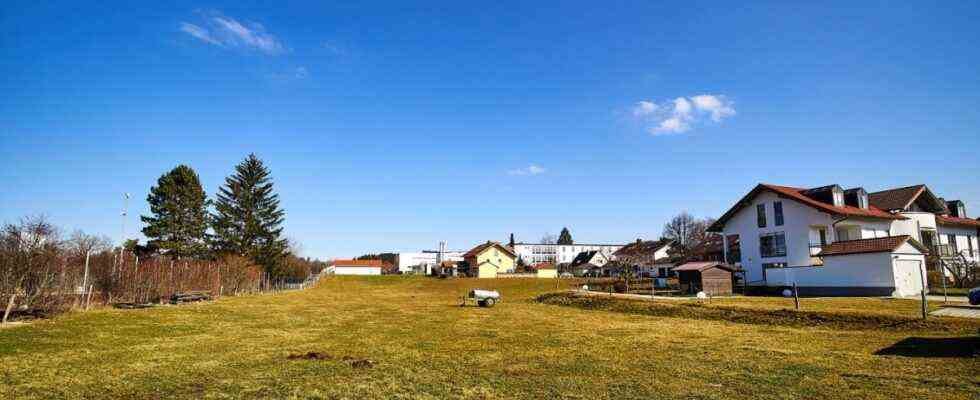This is what a financial policy enema sounds like: “We’re all adults here and we finally have to bring enough responsibility with us to see that we need more backbone!” CSU parliamentary group leader Max Graf von Rechberg scolded. The backbone of “finally saying ‘stop’ when it comes to spending.” It shouldn’t be true how the Grafinger city council handles the money: “Every family tries to keep their money together at home – why haven’t we been able to do that for 20 years?”
What happened? Mayor Christian Bauer (CSU) gave his assessment of the budget situation in the city council on Tuesday evening. That’s a forecast with significant unknowns. “Income has not collapsed as much as feared as a result of the Corona crisis,” he explained. That’s why his city, unlike many other municipalities, has not increased its taxes and fees.
But the truth is also: “We are still waiting for the effects of the loss of income from the past two years.” Experience has shown that the problems faced by companies only show up in trade tax payments with a time lag. Unpleasant surprises cannot be ruled out. “And at the same time, the increase in construction costs is making life difficult for us,” complained the mayor.
On the other hand, it is documented that the city wants to draw almost 2.5 million euros from the reserves for its 2022 budget. According to Treasurer Veronika Kainz, another two million euros are to be raised on the credit market. And because not much can be drawn from the reserves in the following years, new borrowing swells drastically in the financial plan for the next few years: According to the financial plan, it should be 15.6 million euros in the four budget years 2022 to 2025. Roughly speaking, this corresponds to a doubling of the debt level on December 31, 2021.
Total volume: 43.3 million euros
According to their list, the total volume of the 2022 budget is 43.3 million euros. That is around four million euros more than last year. Albeit around five and a half million euros lower than in the pre-pandemic year 2019. A good 31 million euros of this is attributable to the administrative budget and 12.3 million euros to the assets or investment budget.
About a sixth of it, namely two million euros, is earmarked for a first down payment for the new children’s center in Forellenstrasse. 900,000 euros are due for the land purchase of the senior citizens’ home underground car park, 850,000 euros for the remaining work on the new building yard, 800,000 euros for the ongoing expansion of the elementary school and the renovation of the playground. Around 400,000 euros each are earmarked for the conversion of the street lighting and the rehabilitation of the municipal roads. 355,000 euros for various bridge renovations and 250,000 euros in grants for the Senior Citizens’ Home Foundation.
The list of investments will remain long in the years to come. So it could only be a matter of time before Mayor Bauer’s mantra of not wanting to raise anything on the fee side is dropped.
“In any case, I don’t see much room for maneuver on the expenditure side,” said CSU city councilor and Florian Wieser. “In this respect, only the income side remains.” Wieser’s wording must have been well thought out, as it does not mean a demand for tax increases, for example in trade tax. As is well known, their income would also increase if space were created in Grafing for more trade. “That seems to me to be the most sensible option for our city with low resource requirements.”
FDP city councilor Claus Eimer placed a small dig at the CSU. During Graf Rechberg’s backbone appeal in terms of spending, he had to smile a bit. “If I look at the last proposals from the CSU here in the committee – skate park and tartan track – then they would have been candidates for the required backbone.”
In the end, the city council accepted the budget draft – against the two votes of Graf Rechberg and Lena Huppertz (left).

